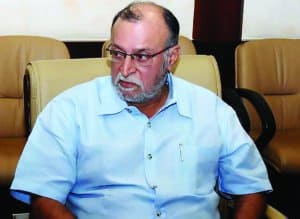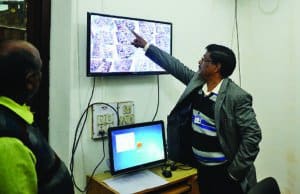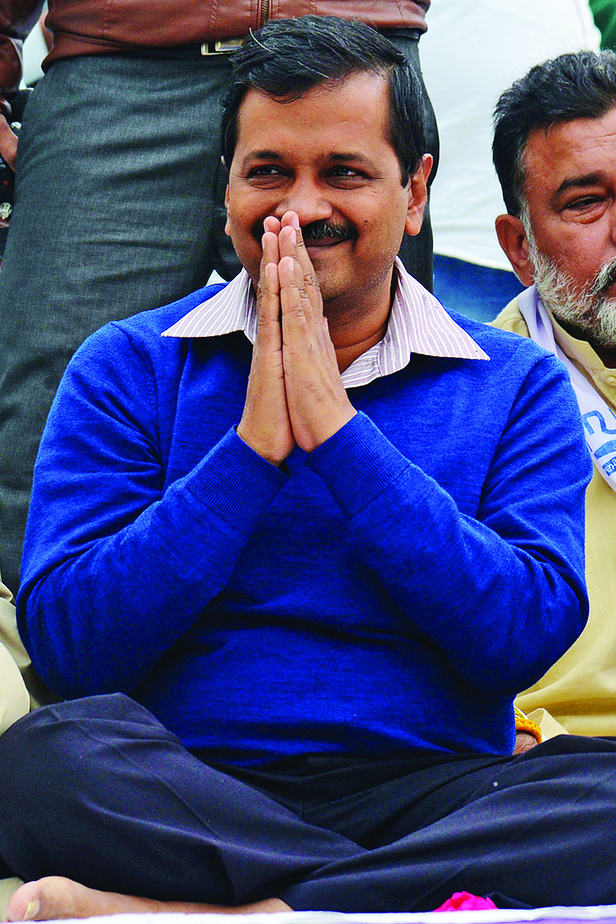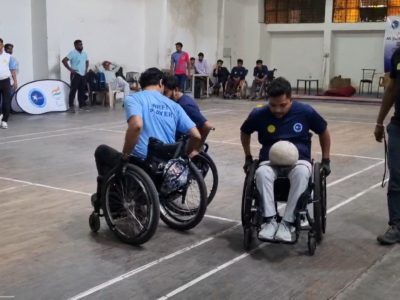A pertinent question: Is it the politics of one-upmanship or concern for the safety of people that guides the authorities that run Delhi?
Delhi has the dubious distinction of being dubbed the rape capital of the world. This epithet is not without reason. Public places are not safe for women. And the authorities have failed to do anything about it. Places like parks, parking lots, side alleys, and so many places which are relatively desolate during the night become venue for violence against women.
It’s impossible to man all such places. Had it been possible, Delhi Police — which is overburdened protecting the VVIPs — would have certainly done something about it in the last decade or so.

So if you can’t man these desolate parts of the city, you can at least keep an eye. Technology helps you do that fairly effectively, round the clock. The Aam Aadmi Party (AAP) government in Delhi headed by Arvind Kejriwal approved a mega project to install CCTV across the lengths and breadth of the city. This fear of being watched, or Big Brother watching, or that all misdeed can be tracked back to the culprit, would certainly prove an effective deterrent.
Lieutenant Governor (LG) of Delhi Anil Baijal, also in charge of Delhi Police, should have welcomed the move. The capital city of India, the largest democracy in the world, which is claiming her rightful place in the comity of nations, cannot be allowed to be a city that doesn’t respect women.
As per National Crime Records Bureau (NCRB) figures, Delhi is the most unsafe city among 19 major metropolises of the country as there were 13,803 crimes against women cases out of a total 41,761, or one-third of all, in 2016. Delhi Police has failed miserably to curb crime against women. So it’s not a myth that Delhi is not safe for women.
The LG, as alleged by Kejriwal, is the representative of the central government and not a custodian of the constitution of India. Baijal wanted to constitute a high-powered committee that would oversee the implementation of the CCTV project.
The Congress, which is non-existent in the state assembly, also wants to put in its two bits. It smells a rat: the CCTV project is a “scam”, according to Ajay Maken of Congress.

As recent happenings in Karnataka showed, the questionable conduct of Governor Vajubhai Vala could only be undone by the timely and apt intervention of the Supreme Court. The Karnataka controversy has only cemented the popular perception that gubernatorial positions in various states are being used to promote the interests of the BJP government at the Centre under the leadership of Prime Minister Narendra Modi. The office of LG of Delhi seems no exception.
Let’s discuss the CCTV project that is meant to make women of Delhi feel safe to negotiate public spaces at any time of the day, in the way they choose to. CCTVs, like thousands of open eyes, will witness and record all that happens in the city without fear or favour.
No one can deny the utility of this project, not even the LG.
However, till May 15, reacting to the three-hour-long dharna by Chief Minister Arvind Kejriwal along with the latter’s cabinet colleagues and AAP MLAs outside former’s office, Baijal maintained that the protest is “without reason” and to “mislead” people as he has not received any proposal on CCTV cameras. “The CM has ignored the fact that his own cabinet has not yet considered the departmental proposal for CCTVs. It is only after cabinet approval that such proposals are sent to the LG,” said Baijal in a press statement.
The LG communicated similar sentiments to Kejriwal a day earlier. His letter clarified that he hasn’t issued any order to stall or stop CCTV initiatives in the city. Either the LG or the chief minister is lying, as on May 14, Kejriwal argued that he’s left with no option but to stage a dharna as the LG office reportedly refused to give an appointment to the chief minister of the state, with his party’s MLAs, to discuss CCTV cameras project.
The AAP government alleges that the LG is dragging his feet on the project. In an interview to a leading daily, Kejriwal said, “LG is refusing to meet the MLAs. We want him to meet all of us, including the MLAs.” The meeting was requested after LG proposed to constitute a high-level committee to draft a framework for the installation of CCTV cameras. Privacy was listed as one of the concerns. What is the meaning of privacy in a public place? It has to be said, privacy in public sphere only helps serial offenders.
Kejriwal has charged that constitution of a committee is another way to stop the project and prevent the AAP government making Delhi safer for women. “Why didn’t u (LG) set up committee when MCD, NDMC, Metro, police set up 2 lac (lakh) cameras last yr? Now when Del govt installing cameras, u set up a committee? People questioning ur motives. Obviously, BJP stalling it thro(ugh) u. Sir, pl say “NO” to BJP’s pressures for sake of Del’s women” Kejriwal appealed in his tweet.
In short, the CM expects the LG to be guided by public interest. LG has since refuted this allegation.
Also, it’s tragi-comic and ironical that LG had to communicate with the CM through tweets while the latter was protesting outside the former’s residence in the scorching sun to be granted an audience to discuss the CCTV proposal.
AAP, still a nascent party, had single-handedly excommunicated the two top national parties, the BJP and the Congress, during the Delhi Assembly elections of February 2015. As has often being alleged by Kejriwal, despite his overwhelming majority, the BJP wants to rule Delhi by proxy.
If this situation persists, the people of Delhi could legitimately demand CCTV surveillance over politicians and bureaucrats.





